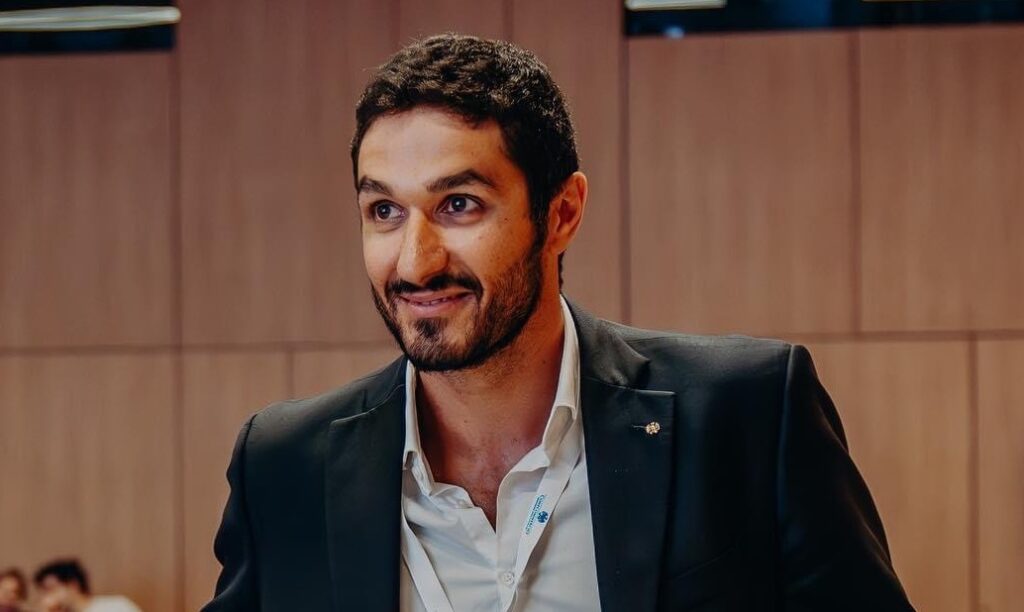Dario Palermo, a prominent figure in contemporary music, has garnered recognition for his innovative compositions that seamlessly blend acoustic and electronic elements. His work stands at the intersection of tradition and modernity, making him a unique voice in the world of classical and experimental music. This detailed biography explores Palermo’s life, his journey as a composer, and the impact he has had on contemporary music.
Early Life and Education
Childhood and Initial Exposure to Music
Dario Palermo was born in Italy, a country with a rich musical heritage that has produced some of the world’s most influential composers. Growing up in this culturally vibrant environment, Palermo was exposed to music from an early age. His initial fascination with sound and music was nurtured by his family, who recognized his talent and encouraged him to pursue formal training.
Formal Education and Influences
Palermo’s formal education in music began at a young age. He attended various music schools in Italy, where he studied under renowned composers and musicians who would profoundly influence his work. During this period, Palermo was introduced to the classical repertoire, developing a deep appreciation for composers like Johann Sebastian Bach, Ludwig van Beethoven, and Igor Stravinsky.
However, it wasn’t long before Palermo’s interests expanded beyond the traditional classical canon. He became increasingly fascinated with modern and contemporary music, particularly the works of 20th-century composers such as Pierre Boulez, Karlheinz Stockhausen, and Luciano Berio. These influences would later play a significant role in shaping Palermo’s unique compositional style, which blends the structural rigor of classical music with the experimental approaches of modernism and post-modernism.
Higher Education and Advanced Studies
To further his education, Palermo pursued advanced studies in composition at some of Italy’s most prestigious music conservatories. Here, he delved deeper into the theoretical and practical aspects of composition, honing his skills in orchestration, counterpoint, and harmony. He also began experimenting with electronic music, a field that was still relatively new at the time.
Palermo’s interest in electronic music led him to explore the works of pioneers like Luigi Nono and Bruno Maderna. He was particularly intrigued by the potential of electronic music to expand the possibilities of sound and composition. This interest would eventually lead Palermo to develop a compositional approach that integrates both acoustic and electronic elements, creating a distinctive sound that has become his signature.
The Beginning of a Promising Career
Early Compositions and Breakthrough
Dario Palermo’s career as a composer began in earnest in the late 1990s, when he started to gain recognition for his innovative compositions. His early works, which include chamber music, orchestral pieces, and solo compositions, were noted for their complexity and originality. Palermo’s ability to blend traditional compositional techniques with modernist and experimental elements quickly set him apart from his contemporaries.
One of Palermo’s early breakthrough works was his String Quartet No. 1, a piece that exemplified his skill in writing for strings while incorporating modern harmonic and rhythmic structures. The quartet received critical acclaim for its boldness and creativity, marking Palermo as a composer to watch.
Exploration of Electronic Music
As Palermo’s career progressed, he became increasingly interested in the possibilities of electronic music. He began experimenting with various electronic instruments and technologies, exploring how they could be integrated into traditional compositional forms. This experimentation led to the creation of several electroacoustic works, which combined live performance with electronic soundscapes.
One of Palermo’s most significant contributions to the field of electronic music is his Electroacoustic Suite. This work, which blends live acoustic instruments with pre-recorded electronic sounds, showcases Palermo’s ability to create complex, multi-layered compositions that challenge the boundaries of traditional music. The Electroacoustic Suite is widely regarded as a landmark in Palermo’s career, highlighting his innovative approach to composition.
Establishing a Unique Voice in Contemporary Music
Signature Style and Thematic Concerns
By the early 2000s, Dario Palermo had established himself as a leading figure in contemporary music. His signature style, characterized by the seamless integration of acoustic and electronic elements, had become widely recognized and admired. Palermo’s compositions are often described as evocative and emotionally powerful, with a focus on exploring the relationships between sound, time, and space.
A recurring theme in Palermo’s work is the exploration of the natural world and the environment. His compositions often draw inspiration from nature, using sound to evoke landscapes, weather patterns, and other natural phenomena. This thematic focus is evident in works like Soundscapes, a series of compositions that use field recordings and electronic manipulation to create immersive auditory environments.
Collaborations and Performances
Throughout his career, Dario Palermo has collaborated with a wide range of musicians, composers, and artists. These collaborations have allowed him to expand his creative horizons and explore new forms of artistic expression. Palermo’s willingness to collaborate is a testament to his belief in the power of interdisciplinary work and the idea that music can be enriched by incorporating elements from other art forms.
One of Palermo’s most notable collaborations was with the renowned conductor and composer Rildo Hora. Together, they worked on several projects that combined traditional orchestral music with electronic elements, resulting in performances that were both innovative and deeply moving. These collaborations helped to further establish Palermo’s reputation as a composer who is unafraid to push the boundaries of conventional music.
Palermo’s works have been performed at numerous prestigious venues and festivals around the world, earning him recognition and acclaim within the contemporary music community. His music has been praised for its originality, depth, and the way it challenges both performers and audiences to engage with the material on a profound level.
Palermo’s Impact on Contemporary Music
Contributions to Education and Mentorship
In addition to his work as a composer, Dario Palermo has made significant contributions to music education. He has held various teaching positions at conservatories and universities, where he has shared his knowledge and passion for music with the next generation of composers and musicians. Palermo’s commitment to education underscores his belief in the importance of nurturing new talent and continuing the evolution of music.
As a mentor, Palermo has influenced many young composers, encouraging them to explore new ideas and approaches to composition. His teaching style is known for being both rigorous and supportive, pushing students to reach their full potential while also fostering their individual creativity.
Legacy and Continuing Influence
Dario Palermo’s influence on contemporary music is profound and enduring. His ability to blend traditional and modern elements has inspired a new generation of composers who are eager to explore the possibilities of acoustic and electronic music. Palermo’s work continues to be performed and studied around the world, ensuring that his contributions to music will be remembered for years to come.
Palermo’s legacy is also reflected in the numerous awards and honors he has received throughout his career. These accolades are a testament to the impact he has had on the world of music and his status as one of the most innovative composers of his generation.
Conclusion
Dario Palermo’s life and career are a testament to the power of innovation and creativity in music. From his early days as a student in Italy to his current status as a leading figure in contemporary music, Palermo has consistently pushed the boundaries of what is possible in composition. His unique blend of acoustic and electronic elements, combined with his thematic focus on nature and the environment, has made him a distinctive voice in the world of music.
As we look to the future, it is clear that Dario Palermo’s influence will continue to be felt in the world of contemporary music. His work serves as an inspiration to both established composers and emerging talents, reminding us of the endless possibilities that music offers. Through his compositions, collaborations, and teaching, Palermo has left an indelible mark on the world of music, ensuring that his legacy will endure for generations to come.

